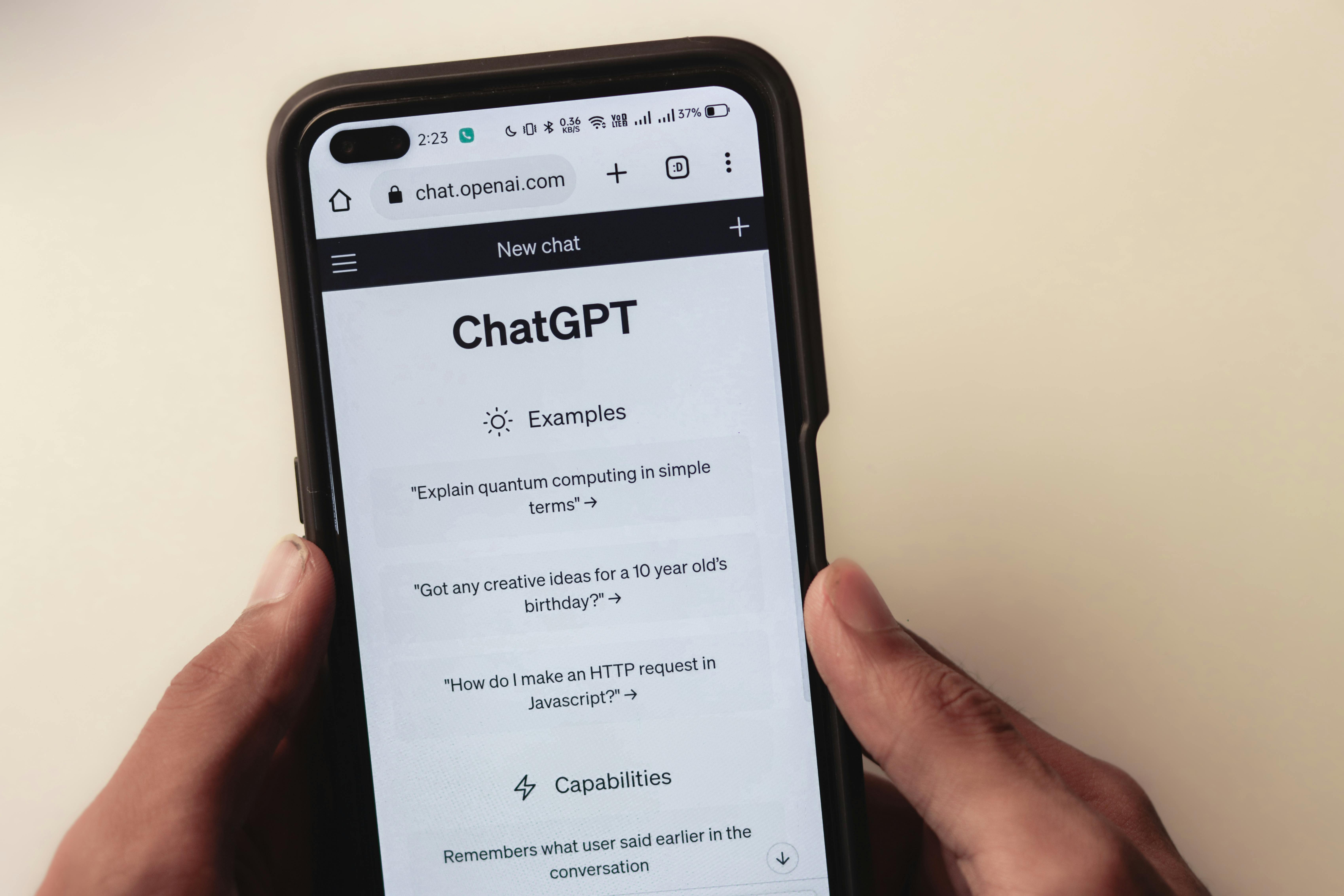AI Blog Writers: Your Secret Weapon for Ranking on Google?
asdsad
dasd
AI Blog Writers: Your Secret Weapon for Ranking on Google?
The digital landscape is in constant flux, and content remains king in the realm of search engine optimization (SEO). Businesses and creators alike are perpetually seeking innovative ways to produce high-quality content efficiently to capture Google's coveted top spots. Enter AI blog writers – sophisticated tools promising to revolutionize content creation. But can these AI-powered assistants truly help you rank higher on Google, or are they just another fleeting trend? This article delves into the potential of AI blog writers for SEO, exploring their benefits, limitations, and the strategies crucial for success.
The Rise of AI in Content Creation
Artificial intelligence has made significant inroads into various industries, and content creation is no exception. AI blog writers are software applications that utilize natural language processing (NLP) and machine learning (ML) models to generate human-like text. These tools can draft articles, blog posts, marketing copy, and more, often based on minimal input like a topic, keywords, or a brief outline.
The appeal of AI blog writers is undeniable. They offer the potential to drastically reduce the time and effort involved in content production, enabling businesses to scale their content marketing efforts like never before. For busy marketers, solo entrepreneurs, or large teams facing tight deadlines, the ability to generate draft content quickly can be a game-changer. However, the effectiveness of this AI-generated content in the context of Google's complex ranking algorithms warrants a closer look.
Understanding Google's Algorithm and Ranking Factors
Before we assess how AI blog writers can impact SEO, it's crucial to understand what Google values. Google's primary goal is to provide users with the most relevant, helpful, and reliable answers to their queries. Its algorithms use hundreds of signals to rank web pages, but some core principles stand out.
A significant aspect is E-E-A-T, which stands for Experience, Expertise, Authoritativeness, and Trustworthiness. Google wants to surface content from sources that demonstrate these qualities. Content that is well-researched, accurate, comprehensive, and written by credible authors (or demonstrates clear expertise) tends to perform better.
Other critical factors include keyword relevance (using terms your audience searches for), user experience (UX) encompassing site speed, mobile-friendliness, and easy navigation, high-quality backlinks from reputable sites, content freshness, and overall content quality. The question then becomes: can AI-generated content consistently meet these demanding criteria?
How AI Blog Writers Can Supercharge Your SEO Efforts
When used strategically, AI blog writers can offer several advantages that contribute positively to SEO performance. These tools are not just about speed; they can also assist in various stages of the content creation process.
Keyword Research and Integration: Many advanced AI writing tools come equipped with SEO functionalities. They can help identify relevant keywords, analyze their search volume, and even suggest how to integrate them naturally into the content. This can save considerable time in the initial research phase and help ensure your content is targeting the right search queries.
Content Ideation and Outlining: Stuck for ideas? AI can be an excellent brainstorming partner. It can generate a plethora of topic suggestions based on a general theme or keyword. Furthermore, AI tools can help create structured outlines for blog posts, ensuring logical flow and comprehensive coverage of a topic, which is beneficial for both user engagement and search engine crawlers.
Speed and Scalability: This is perhaps the most touted benefit. AI can produce a first draft of an article in minutes, a task that could take a human writer hours. This speed allows for a significant increase in content output, enabling businesses to publish more frequently and cover a wider range of topics. For campaigns requiring a large volume of content, AI can be invaluable for maintaining momentum.
Improving Readability and Grammar: Most AI blog writers incorporate grammar and style checkers. They can help polish text, improve sentence structure, and ensure a certain level of readability. This is crucial because content that is easy to read and understand generally leads to better user engagement, a positive signal for Google.
Generating Meta Descriptions and Titles: Crafting compelling, SEO-friendly titles and meta descriptions is vital for click-through rates from search results. Some AI tools can generate multiple options for these elements, optimized for length and keyword inclusion, helping your content stand out on the SERP (Search Engine Results Page).
Maintaining Consistency: For brands that need to maintain a specific tone or style across numerous pieces of content, AI can be programmed or guided to adhere to these guidelines, ensuring a consistent brand voice, especially when multiple human writers might introduce variability.
Navigating the Pitfalls: Limitations and Challenges of AI-Generated Content
Despite the impressive capabilities, relying solely on AI blog writers without human intervention can lead to significant SEO problems and content quality issues. Understanding these limitations is key to using AI effectively.
Originality and Plagiarism Concerns: AI models learn from vast datasets of existing online text. While they aim to generate unique content, there's always a risk of producing text that is too similar to existing sources or even inadvertently plagiarized. Search engines penalize duplicate content, so originality is paramount.
Factual Accuracy and "Hallucinations": AI can sometimes generate information that sounds plausible but is factually incorrect or nonsensical – often referred to as "AI hallucinations." Publishing inaccurate content can severely damage your credibility and E-E-A-T signals, negatively impacting your rankings.
Lack of Genuine Expertise and Human Nuance: AI cannot replicate true human experience, deep subject matter expertise, critical thinking, or emotional intelligence. Content may lack the depth, unique insights, personal anecdotes, or subtle nuances that make human-written content engaging and authoritative. This is particularly important for topics requiring specialized knowledge or a strong personal voice.
Over-Optimization and Robotic Tone: AI might sometimes produce content that is overly optimized for keywords, leading to an unnatural, robotic tone that alienates readers. Google's algorithms are sophisticated enough to detect keyword stuffing and prioritize content written for humans first, search engines second.
Google's Stance on AI Content: Google has clarified its position: it prioritizes helpful, high-quality content, regardless of how it's produced. However, content created primarily to manipulate search rankings, rather than help users, is against their spam policies. Low-quality, unedited AI content can easily fall into this category. The emphasis is on the quality and value of the content, not its method of creation.
Key Strategies for Leveraging AI Blog Writers to Rank on Google
To harness the power of AI blog writers for SEO success while mitigating the risks, a strategic and human-centric approach is essential. It's not about replacing human writers but augmenting their capabilities. Here are key strategies to effectively use AI for content that ranks:
Prioritize Human Oversight and Editing: Always treat AI-generated text as a first draft. Human review, meticulous editing, and refinement are non-negotiable. Check for accuracy, clarity, tone, originality, and overall value. Add your unique insights, brand voice, and expert perspective to elevate the content.Focus on Quality Over Quantity: While AI enables rapid content generation, avoid the temptation to churn out low-value articles. Each piece of content should be well-researched, provide genuine value to the reader, and thoroughly address user intent. A single high-quality article will always outperform dozens of mediocre ones in the long run.Use AI as an Augmentation Tool, Not a Replacement: Leverage AI for its strengths: brainstorming, outlining, overcoming writer's block, summarizing research, or drafting initial sections. Human writers should then take over to add depth, creativity, critical analysis, and ensure the content aligns with the brand's E-E-A-T.Thoroughly Fact-Check and Verify Sources: Never take AI-generated information at face value, especially statistics, data points, or specific claims. Always cross-reference information with reputable and current sources. Cite sources appropriately to build trust and authority.Personalize and Inject Unique Perspectives: Make the content your own. Incorporate personal anecdotes, case studies, original research, expert interviews, or unique opinions that AI cannot generate. This differentiation is crucial for standing out and building a loyal audience.Optimize for User Intent, Not Just Keywords: Understand the underlying reason a user is searching for specific keywords. Does your content comprehensively answer their questions, solve their problems, or satisfy their curiosity? AI can help with keyword placement, but human understanding of user intent is vital for creating truly helpful content.Integrate with Your Broader SEO Strategy: AI-assisted content should seamlessly fit into your overall SEO plan. This includes robust on-page optimization (headings, internal links, image alt text), building high-quality backlinks, and effective content promotion strategies.Continuously Monitor Performance and Adapt: Track how your AI-assisted content performs in search rankings, user engagement metrics (time on page, bounce rate), and conversions. Use analytics to understand what works and refine your approach. Be prepared to update and improve content based on performance data and evolving search trends.
Choosing the Right AI Blog Writing Tool for Your Needs
With a growing number of AI writing tools available, selecting the right one depends on your specific requirements and budget. Not all AI writers are created equal, and their capabilities can vary significantly.
Consider the following factors: Features and Functionality: Look for tools that offer robust SEO optimization capabilities, built-in plagiarism checkers, integration with other platforms (like WordPress or SEO software), support for multiple languages if needed, and a variety of content templates (e.g., blog posts, product descriptions, social media updates).
Output Quality: The quality of the generated text is paramount. Test several tools, perhaps using free trials, to assess the coherence, accuracy, naturalness, and overall readability of the output. Some tools are better suited for specific types of content than others.
Ease of Use: The tool should have an intuitive user interface and a manageable learning curve. Complex tools might offer more features but could slow down your workflow if they are difficult to master. Look for clear instructions and good customer support.
Pricing and Customization: AI writing tools typically operate on subscription models or credit-based systems. Evaluate the pricing structure in relation to your content needs and budget. Also, check for options to customize prompts, define tone of voice, or fine-tune the AI for your specific niche.
While some tools are general-purpose, others specialize in particular areas like long-form content or marketing copy. Research reviews and user testimonials to gain insights into the practical performance of different AI writers.
The Evolving Landscape: AI, Content, and the Future of SEO
AI technology in content creation is advancing at a breathtaking pace. We can expect future AI writers to become even more sophisticated, with improved understanding of context, nuance, and even creative expression. The line between human-written and AI-generated text may continue to blur.
However, the fundamental principles of good SEO and valuable content are unlikely to change drastically. Google's commitment to rewarding content that genuinely helps users will remain. Therefore, the enduring importance of human creativity, strategic thinking, and ethical considerations in content creation cannot be overstated.
The most successful approach to using AI blog writers for Google ranking will likely continue to be a synergistic one. AI tools can empower human creators, making them more efficient and productive, but they cannot replace the critical judgment, authentic experience, and strategic insight that humans bring to the table. It's about leveraging technology wisely, maintaining high ethical standards, and always prioritizing the needs and expectations of your audience. Embracing AI as a powerful assistant, rather than a complete substitute for human ingenuity, will be key to navigating the future of content creation and achieving sustained success in the competitive arena of search engine rankings.

